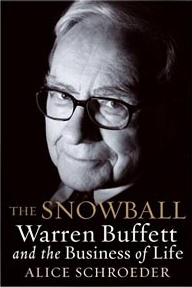 Image via Wikipedia
Image via WikipediaIn his
2011 annual letter to shareholders [pdf download], Warren Buffett offered a variety of insights for business owners. Here are five of my favorite pearls of wisdom from the Oracle of Omaha:
1. Don’t throw the baby out with the bath water
Berkshire Hathaway has a significant exposure to the U.S. housing market, yet instead of selling assets or de-prioritizing the industry, Buffett made some additional investments in his housing-related businesses, including purchases of the largest brick manufacturer in Alabama, a new $55-million plant for roofer Johns Manville and five “bolt-on” acquisitions for MiTek.
Takeaway for business owners: Don’t mistake an industry in a cyclical downturn for a business in trouble.
2. Keep your “elephant gun” loaded
“Our elephant gun has been reloaded, and my trigger finger is itchy,” writes Buffett.
Berkshire Hathaway is sitting on $38 billion in cash, which means it has the resources to buy when others are keen to sell. For example, Buffett deployed $15.6 billion in the 25 days of chaos that followed the Lehman bankruptcy of 2008. Although markets have stabilized, he is still on the hunt for opportunities.
Takeaway for business owners: Build up a war chest of cash — maybe one or two months’ revenue — to pounce on opportunities when others are playing defense.
3. Be cautious with leverage
 Image via Wikipedia
Image via WikipediaBuffett is fiscally conservative, and in this year’s shareholder letter, he outlines his attitudes toward using debt to improve returns:
Unquestionably, some people have become very rich through the use of borrowed money. However, that’s also been a way to get very poor. When leverage works, it magnifies your gains. Your spouse thinks you’re clever, and your neighbors get envious. But leverage is addictive. Once having profited from its wonders, very few people retreat to more conservative practices. And as we all learned in third grade — and some relearned in 2008 — any series of positive numbers, however impressive the numbers may be, evaporates when multiplied by a single zero. History tells us that leverage all too often produces zeroes, even when it is employed by very smart people.
Leverage, of course, can be lethal to businesses as well. Companies with large debts often assume that these obligations can be refinanced as they mature. That assumption is usually valid. Occasionally, though, either because of company-specific problems or a worldwide shortage of credit, maturities must actually be met by payment. For that, only cash will do the job.
Borrowers then learn that credit is like oxygen. When either is abundant, its presence goes unnoticed. When either is missing, that’s all that is noticed. Even a short absence of credit can bring a company to its knees. In September 2008, in fact, its overnight disappearance in many sectors of the economy came dangerously close to bringing our entire country to its knees.
Takeaway for business owners: You probably got into business for yourself — at least in part — for the freedom of running your own company. Don’t undermine your independence by becoming beholden to a lender who can control your fate.
4. Have a replacement
Buffett’s 2011 annual letter to shareholders includes a memo he sent to his top managers requesting they send him their suggestions for their replacements in the event they become incapacitated. Berkshire Hathaway employs some 260,000 people and would have thousands of internal candidates for any job opening; it could also hire the very best headhunter in the country to find a new manager, yet despite all of these resources, Buffett wants his managers to mentor their replacements.
Takeaway for business owners: Grooming a second-in-command provides a great insurance policy in case you get sick, gives you more time away from your business, and ultimately makes your business a lot more valuable if you ever want to sell it.
5. Never stop selling
Warren Buffett is one of the world’s richest, most successful people, yet he wants to sell shareholders a $3 Dairy Queen Blizzard. His letter is, in part, a sales pitch aimed at getting shareholders to attend the Berkshire Hathaway annual general meeting in Omaha. Instead of hosting an annual meeting in a stuffy hotel for a sterilized group of institutional investors, he creates a circuslike atmosphere and invites individual shareholders to the Qwest Center, where they can buy products from the businesses Berkshire owns. A full two pages of Buffett’s annual letter is devoted to selling investors on going to the annual meeting, where they can get a deal on car insurance from Geico or buy a pair of Justin boots or a box of See’s candy or just a Chocolate Xtreme Blizzard to enjoy as they listen to his pitch.
 Image by Ethan Bloch via Flickr
Image by Ethan Bloch via Flickr: No matter how big and successful your business becomes, always be willing to do some selling yourself. It will demonstrate to everyone — from your staff to your customers to your investors — that you’re proud of the products you sell.
What’s your favorite kernel of wisdom from the Oracle of Omaha?























